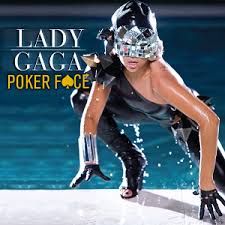Blockchain’s Role in Revolutionizing Gaming
Blockchain technology is fundamentally altering the way gamers can make money by offering new opportunities for ownership, security, and financial rewards. At its core, blockchain allows for decentralized and transparent transactions, ensuring that digital assets, such as in-game items, can be securely owned and traded by players. Unlike traditional gaming models, where in-game items are controlled by game developers and cannot be transferred or monetized outside the game, blockchain introduces the concept of true ownership. This means players can buy, sell, and trade in-game assets like skins, characters, and collectibles as non-fungible tokens (NFTs) on blockchain platforms, with ownership verified through the blockchain. With these advancements, blockchain technology has opened the door for gamers to earn real-world value directly from their gaming activities, transforming the gaming industry into a new economic ecosystem.
Play-to-Earn (P2E) Games and the Blockchain Economy
One of the most significant changes brought by blockchain technology to gaming is the rise of Play-to-Earn (P2E) games. These games reward players with cryptocurrency, NFTs, or other digital assets that have real-world value in exchange for their time and effort in the game. Blockchain enables the creation of decentralized in-game economies, where players can earn digital assets through various activities such as completing tasks, winning battles, or trading items. Games like Axie Infinity, Gods Unchained, and The Sandbox are some of the pioneers of the P2E model, where players can earn crypto tokens or NFTs, which can then be sold or exchanged for fiat money. This model allows gamers to monetize their skills and time, with some players even making a full-time income from gaming.
True Ownership of In-Game Assets
Before blockchain technology, in-game items like skins, characters, and weapons were simply virtual assets controlled by the game developers, and players had no real ownership over them. Blockchain changes this dynamic by giving players true ownership of their digital assets through the use of NFTs. Each NFT represents a unique in-game item that can be sold, traded, or transferred across different games and platforms. This concept is particularly valuable in virtual worlds, where players can build, buy, and sell virtual real estate. For instance, in games like Decentraland and The Sandbox, players can purchase land, build on it, and even rent or sell it to other players, turning virtual property into a source of passive income. Blockchain ensures that these assets are unique, tradable, and verifiable, offering players a new level of control over their in-game belongings.
Monetizing Skills and Time with Blockchain
Blockchain technology not only enhances ownership but also allows gamers to monetize their skills in ways that were previously impossible. In traditional games, players might spend hours mastering a game, but their progress was often limited to rewards like achievements or leaderboards, with no direct financial compensation. With blockchain-based games, players can earn cryptocurrency or NFTs based on their in-game accomplishments, which can be exchanged for real money. Games like Splinterlands reward players with rare cards that can be traded for cryptocurrency, while Axie Infinity lets players breed, raise, and battle creatures for in-game rewards. In addition, many blockchain-based games have integrated decentralized finance (DeFi) elements, such as staking, lending, or liquidity mining, enabling players to further grow their digital earnings through investments and financial activities within the game ecosystem.
The Future of Blockchain Gaming and Financial Opportunities
The potential for blockchain technology in gaming is just beginning to be realized, and its future looks incredibly promising. As blockchain technology continues to evolve, more games are expected to adopt decentralized models, offering even more opportunities for players to earn real-world value from their gaming efforts. The integration of NFTs, cryptocurrency rewards, and decentralized economies in games is creating new financial systems within the gaming industry, which could allow players to earn passive income, trade digital assets, and even participate in virtual marketplaces. The development of the metaverse, a collective virtual shared space powered by blockchain, will also offer new ways for gamers to interact, socialize, and earn money. As blockchain technology advances, the line between gaming and earning will continue to blur, paving the way for a new era where gamers can make money while doing what they love.
In conclusion, blockchain technology is revolutionizing the way gamers make money by providing true ownership of digital assets, enabling Play-to-Earn models, and introducing new ways to monetize time and skills. Through the use of NFTs and cryptocurrency, blockchain-based games create real-world financial opportunities for players, allowing them to earn money through gameplay, trading, and investing. As the technology continues to mature, it promises to reshape the gaming industry, offering even more opportunities for gamers to profit and interact with the digital economy. Blockchain gaming is not just a trend; it’s the future of how gamers earn and own their virtual assets.
Play and win real money at the best online casino – Join now!



